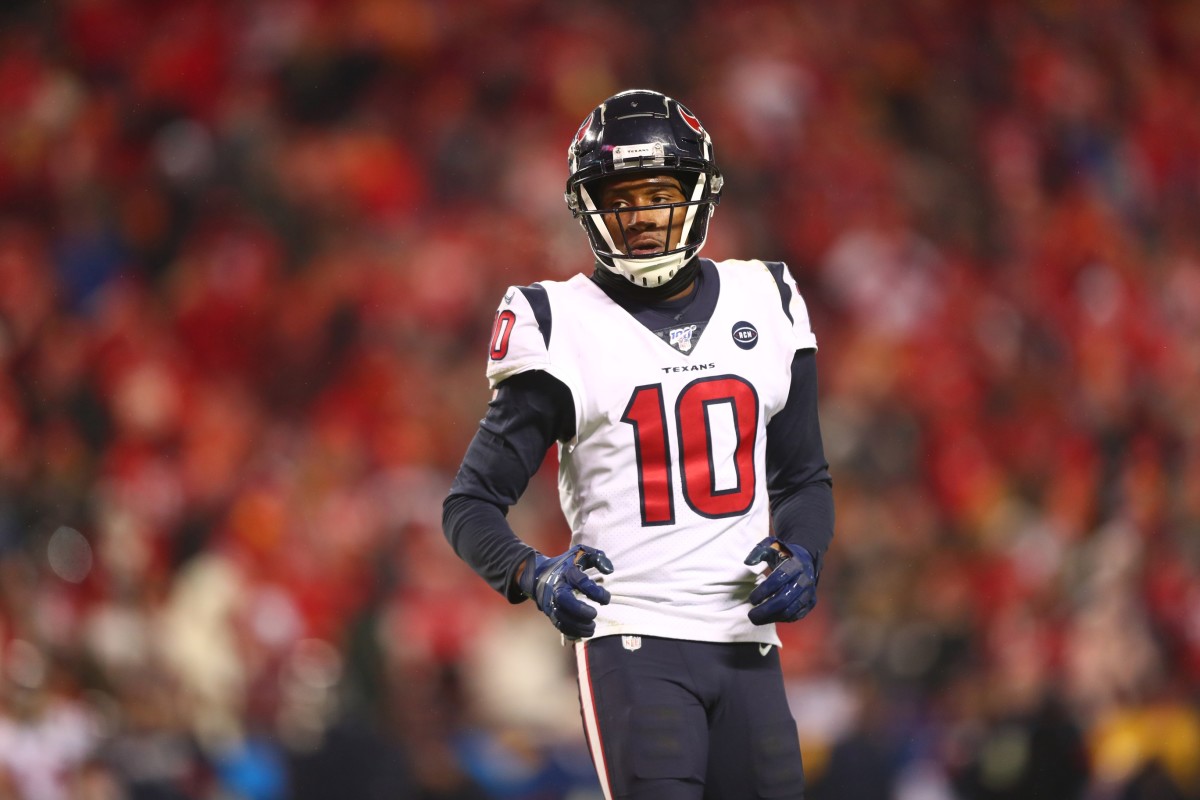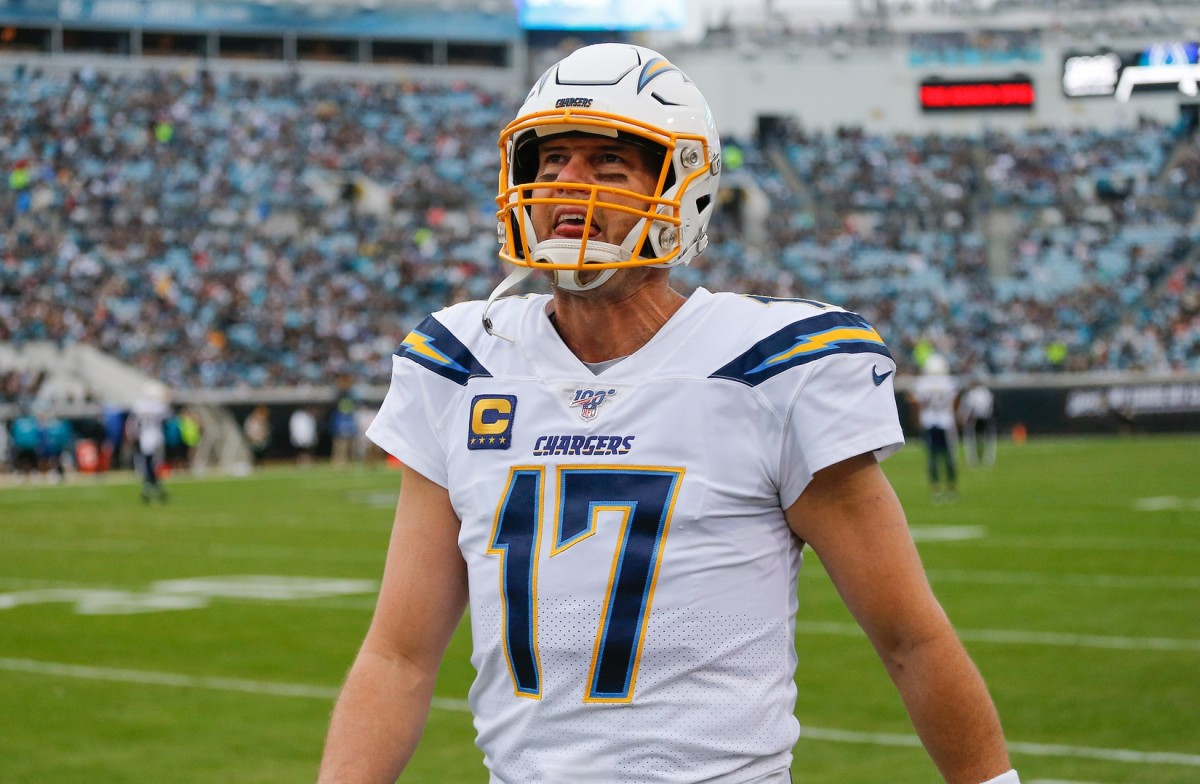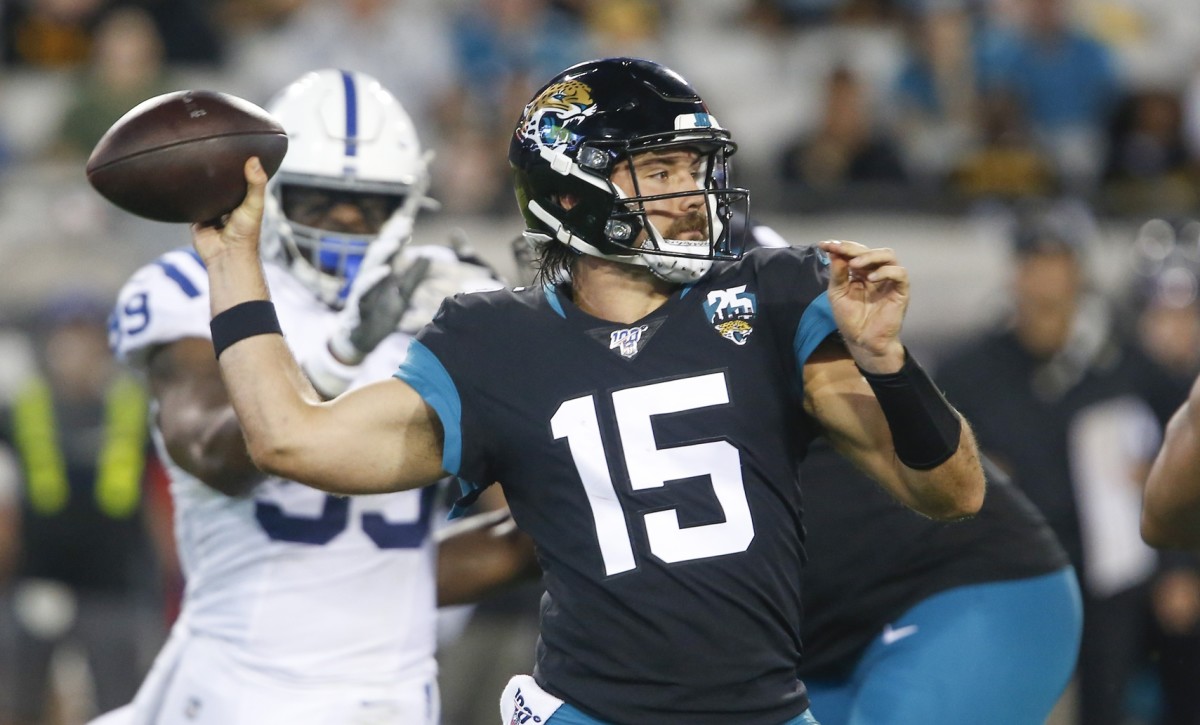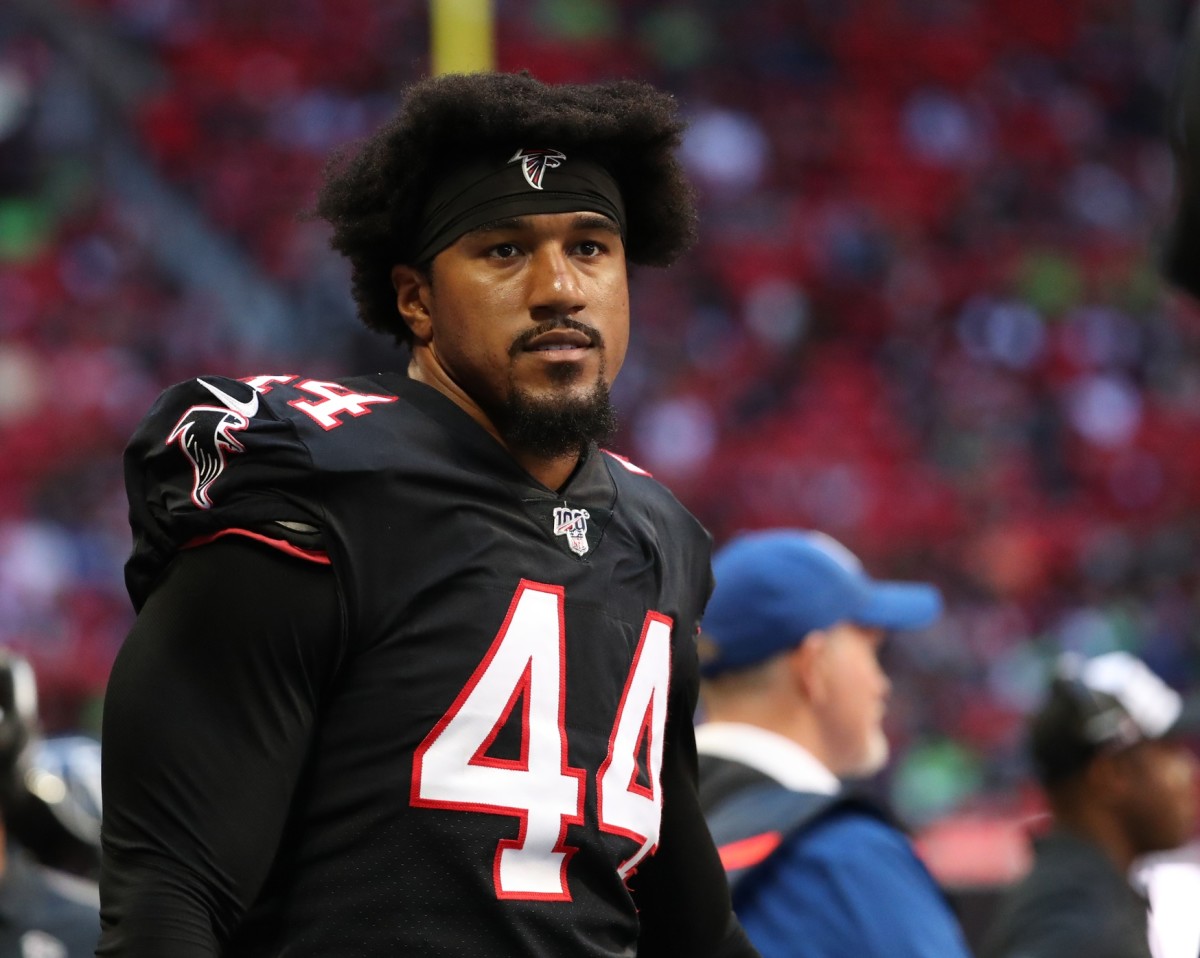Inside AFC South: Roster Move Under the Microscope

Each NFL offseason, teams typically make at least one major roster move that is expected to have a significant impact.
The AFC South Division’s Houston Texans, Indianapolis Colts, Jacksonville Jaguars, and Tennessee Titans made varying levels of splashes, some larger than others. NFL analysts are still scratching their heads about the Texans trading All-Pro wide receiver DeAndre Hopkins to Arizona.
Here’s what Sports Illustrated editors for the respective teams considered the biggest roster moves that will be under the microscope.

Houston Texans
Patrick Starr, State of The Texans
It caused the most fuss this offseason when the Texans traded Hopkins to Arizona for running back David Johnson and a 2020 second-round draft pick in addition to a swap of fourth-round selections. The decision remains the most talked-about for the team.
Hopkins, 28, is one of the NFL’s best at his position, being named First-Team All-Pro as well as to the Pro Bowl the past three seasons. In 110 starts for seven seasons, he’s caught 632 passes for 8,602 yards and 54 TDs.
Can the Texans succeed without having a bonafide No. 1 wide receiver by depending on quarterback Deshaun Watson to distribute the ball to the open target properly? The Texans have made a concerted effort to move the Texans offense into Watson's hands and depend on a balanced attack with more offensive weapons instead of mass targets to only Hopkins.
Watson will have to make wide receivers Brandin Cooks, Kenny Stills, Will Fuller, and Randall Cobb work instead of the dynamic play of Hopkins. If the Texans offense falters, especially when they need a big play in the passing game with no Hopkins, the trade will be poked and prodded even more.

Indianapolis Colts
Phillip B. Wilson, AllColts
The Colts made two big offseason splashes with the additions of All-Pro defensive tackle DeForest Buckner and quarterback Philip Rivers, but one looms larger than the other for 2020 because it’s at the most important position.
The decision to sign a 38-year-old Rivers to a one-year, $25-million contract will impact how general manager Chris Ballard prioritizes future decisions. If Rivers can regain past Pro Bowl form and be the elite quarterback that head coach Frank Reich envisions, the passer plans to play for at least another year. Rivers has committed to being an Alabama high school coach so he can be a mentor for his two sons, which likely caps his retirement timeline at no more than two or three NFL seasons.
That would buy Ballard time to figure out the franchise’s quarterback for the future. He can position the team accordingly, either in the draft or managing the salary cap to be able to afford the addition of another expensive free agent.
If Rivers proves he isn’t worth further investment, the Colts are looking at not having a quarterback for 2021 unless rookie fourth-round pick Jacob Eason shows more promise than expected. As of now, Eason just making the roster isn’t a given.
The Colts faltered to 7-9 with seven losses in nine games in part because of a passing game that didn’t throw the ball down the field enough with Jacoby Brissett. They needed someone who would take chances, hence, Rivers became a popular alternative, especially when considering the gunslinger has previously thrived with Reich and Colts offensive coordinator Nick Sirianni, when they were Chargers assistant coaches.
But Ballard realizes he could be placed in an impossible situation of trying to solve the quarterback problem in 2021. What if he can’t draft the quarterback he covets? What if a seasoned pro that fits isn’t available in free agency?
That’s why Rivers is key, much more than Buckner, who at 26 is entering his prime and should be a long-term defensive cornerstone. The Colts were so sure in what they acquired for the 13th overall draft choice, Ballard gave Buckner a four-year, $84-million extension.

Jacksonville Jaguars
John Shipley, JaguarReport
The most important position in football is the same one the Jaguars have made a potentially franchise-altering move at this season. For 2020, and likely the next few years, look for the Jaguars to be defined by their decision to trade quarterback Nick Foles to the Chicago Bears, opening the door for quarterback Gardner Minshew II as the opening day starter.
There is no question that Minshew had a better 2020 season than Foles, though context is of course needed. Foles was given significantly fewer opportunities due to a Week 1 injury that sidelined him for eight games, in addition to being benched not even three full games into his return. Minshew was deserving of the job over Foles last season, but the thought for many at the beginning of the offseason was that Foles and Minshew would compete to see who would be the 2020 starter.
The Jaguars made their decision long before Week 1, however. They opted to trade Foles to Chicago for a 2020 fourth-round pick (which they'd later use to select backup linebacker Shaquille Quarterman).
One can argue it was the right move since Minshew has more upside, but there is merit to the point that Foles, while inconsistent, has proven more throughout his career. All of Jacksonville's bets are on Minshew this year, but in the event he fails, many will wonder what the team could've done with Foles.

Tennessee Titans
David Boclair, AllTitans
The Titans transitioned to a 3-4 base defense in 2014 and, with each passing year, the desire to see an edge rusher who obliterates blocking schemes and terrifies opposing quarterbacks has intensified.
At the start of the offseason, that position once again loomed as one of their most pressing needs.
The only thing general manager Jon Robinson did to address it was to sign free agent Vic Beasley to a one-year, $3.5 million contract. The 27-year-old Beasley (he will turn 28 next week) did lead the NFL with 15 1/2 sacks in 2016, which earned him Pro Bowl and First-Team All-Pro recognition. In his other four seasons with the Atlanta Falcons, he averaged 5 1/2 sacks and never produced more than eight.
Beasley follows Cameron Wake, a 2019 free-agent addition who was cut after year one of a two-year contract.
Tennessee will bank on recent draft choices Harold Landry (second round, 2018) and D’Andre Walker (fifth round, 2019) to do more than they have done. Landry did lead the defense with nine sacks last season and had at least one in five straight games, but he had none in the final four weeks and only one in the playoffs. Coaches have suggested he would benefit from playing fewer snaps in 2020. Walker spent his rookie season on injured reserve.
So, there are possibilities. But everyone is waiting to see if at least one can become the type of pass rusher that quarterbacks must keep an eye on.
(Phillip B. Wilson has covered the Indianapolis Colts for more than two decades and authored the 2013 book 100 Things Colts Fans Should Know & Do Before They Die. He’s on Twitter @pwilson24, on Facebook at @allcoltswithphilb and @100thingscoltsfans, and his email is phillipbwilson24@yahoo.com.)
